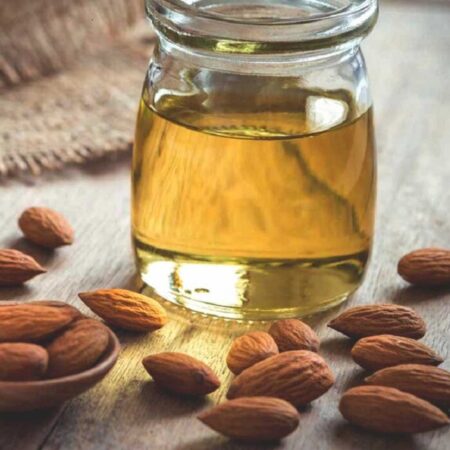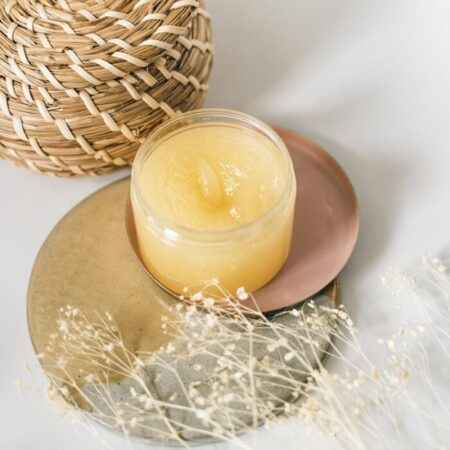
The list of culprits that can cause dry skin is a long one, from daily bathing habits (think hot showers and scrubbing yourself dry with a towel) and wicked winter weather to a lack of natural oils in your skin as you age.
We know how much of a problem it is to manage dry facial skin. No moisturizer variant or topical cream seems to work in the long run for skin issues. Well, it is time to stop wandering in the aisles at the beauty store as we have compiled a list of simple DIY home remedies for dry skin that can help.
It is not just people who have dry skin naturally that find it difficult to manage; normal and oily skin types can also develop dry patches from time to time on their face. Dry skin is essentially when the top layer of skin lacks the required amount of water (hydration) it needs. This layer starts to break down and develop a flaky texture and/or with visible fine lines or cracks.
Keep reading to know more about the underlying reasons for dry skin and how to use home remedies to make your skin soft and glowing.
- What Causes Dry Skin?
- Home Remedies To Get Rid Of Dry Skin On The Face
- 1. Glycerin
- 2. Vaseline
- 3. Aloe Vera
- 4. Oils For Dry Skin
- 5. Juices For Dry Skin
- 6. Lacto Calamine
- 7. Multani Mitti
- 8. Rose Water
- 9. Almonds
- 10. Milk Powder Face Pack
- 11. Apple Cider Vinegar
- 12. Avocado Face Mask
- 13. Banana Face Pack
- 14. Baking Soda
- 15. Turmeric Face Mask
- 16. Breast Milk
- 17. Brown Sugar Scrub
- 18. Butter On Face
- 19. Chocolate Face Pack
- 20. Cinnamon And Honey
- 21. Lemon Face Pack
- 22. Cucumber Face Pack
- 23. Oatmeal Face Scrub
- 24. Rice Flour Mask
- 25. Dead Sea Salt
- 26. Slippery Elm
- 27. Sandalwood Face Pack
- 28. Sour Cream
- 29. Vitamins
- Preventive Tips
What Causes Dry Skin?
The lack of moisture in the skin results from a decrease in the fatty acids (lipids) in the skin, which are responsible for locking in the moisture and keeping the skin soft and supple. Many causes could lead to xerosis, which is an alternative term used for dry skin:
- Changes in the weather, especially during cold and dry winter months
- Dry air in arid and semi-arid regions throughout the year
- Heaters (either central or portable)
- Hot baths/showers
- Chlorinated water from swimming pools
- Harsh chemicals in soaps and detergents
- Skin conditions like atopic dermatitis, psoriasis, eczema, etc.
- Excessive use of skin cleansers
Apart from these causes, medications for high cholesterol, high blood pressures, allergies, and acne can also make your skin dry.
If there are problems aplenty, there are solutions too. Let’s begin with simple homemade solutions for dry skin troubles. Some of these remedies can be used on dry skin across the whole body and not just on facial skin.
Home Remedies To Get Rid Of Dry Skin On The Face
1. Glycerin
Glycerin works wonders not only on dry skin but also on chapped lips. It improves skin hydration and skin barrier function and improves skin health.
You Will Need
- 1 teaspoon glycerin
- 1 tablespoon rose water
What You Need To Do
- Combine glycerin with rose water and apply the mixture to the dry patches on your skin.
- Leave the glycerin mix on for an hour and rinse it off.
How Often Should You Do This
Use this remedy once every day for quick relief from dry skin.
2. Vaseline
Vaseline is composed of petroleum jelly or petrolatum. This ingredient is used to lock in the moisture and prevent water loss from the skin. It can be a little greasy, so it is best used as an overnight treatment. Do not forget to cover your pillow with an old T-shirt or towel to prevent soiling your pillowcase.
You Will Need
Vaseline
What You Have To Do
- Massage the entire face with a small amount of the jelly.
- It is best if you leave this on overnight. In case you find it a little too sticky, leave it on for an hour before wiping the excess off with a tissue or washcloth.
How Often You Should Do This
Do this once every day.
3. Aloe Vera
Aloe vera gel is often used in the treatment of dry and patchy skin. It is also included in many commercially available lotions and creams. It contains polysaccharides that help to retain the moisture levels in the skin. It also enhances collagen and elastin production in the skin, thus restoring its suppleness and elasticity. If your dry skin is due to conditions like psoriasis or eczema, aloe vera can also help to deal with them as it has healing and anti-inflammatory properties. These properties help to alleviate the symptoms of such skin ailments.
You Will Need
An aloe leaf
What You Have To Do
- Cut the aloe leaf diagonally and extract the gel present inside it.
- Apply some of this fresh gel on the face and massage it in, so it is absorbed into the skin.
- Leave the gel overnight.
- Store the remaining gel in an airtight container in a cool place.
How Often You Should Do This
Repeat this every night before going to bed.
4. Oils For Dry Skin
(a) Coconut Oil
Coconut oil can do wonders to replenish and lock in the natural moisture of the skin. It contains healthy fatty acids that replenish the skin’s lessened fatty acid reserve. You can also use baby oil and vegetable oil similarly.
You Will Need
Virgin coconut oil
What You Need To Do
Apply coconut oil on dry areas of your skin and leave it on.
How Often Should You Do This
Apply coconut oil 1-2 times a day.
(b) Jojoba Oil
Jojoba oil is commonly used as a moisturizer for all skin types. It softens the skin and gets rid of flakiness. It also promotes the growth of new skin cells. It has anti-inflammatory properties that help soothe your skin. It acts as a skin barrier repairing agent. It promotes anti-aging and wound healing with its antioxidant effects. Argan oil is an excellent alternative for jojoba oil and can be used to treat dry skin problems.
You Will Need
- 1/2 teaspoon jojoba oil
- 2 cups warm water
- Washcloth
What You Have To Do
- Soak the washcloth in warm water and place it on your face. Keep the washcloth on for 5-7 minutes, and then remove it.
- Massage the jojoba oil into your skin using gentle, circular motions. Keep massaging the skin in upward motions for a few minutes.
- Let the oil soak in and then wipe off the excess oil with the washcloth.
How Often Should You Do This
1-2 times a week.
Caution: The water should not be too hot. Else, it can scar your skin.
(c) Olive Oil
Olive oil has moisturizing properties that nourish your skin. The polyphenols in this oil have antioxidant properties and help counteract the damage caused by the sun. Studies also show that it helps promote dermal reconstruction and wound healing. A rat study shows that lavender helps promote wound healing, which may help with itchiness and skin breakage caused by dry skin.
You Will Need
- 2 teaspoons extra virgin olive oil
- 1-2 drops lavender essential oil
What You Have To Do
- Mix the lavender oil with the olive oil.
- Massage the concoction into your skin. Wipe off the excess oil with a washcloth.
- Alternatively, you may use a small amount of it as a leave-in moisturizer.
- Other oils that can be used instead of lavender oil are grapeseed oil, cypress oil, and black seed oil.
How Often Should You Do This
Use this every night before going to bed.
Caution: Lavender essential oil can cause skin irritation if used undiluted or in large volumes.
(d) Almond Oil
Almond oil has been used in ancient Chinese and Ayurvedic medicines to treat dry skin. It has moisturizing properties and makes your skin smooth and supple. It can also improve your complexion and skin tone. Geranium oil is an antiseptic and anti-inflammatory due to which it is often used in skin care. It can also treat conditions like eczema, which is one of the causes of dry skin.
You Will Need
- 4 tablespoons sweet almond oil
- 2-3 drops geranium essential oil
What You Have To Do
- Transfer the almond oil to a sterilized glass bottle.
- Add the geranium essential oil and shake the bottle well.
- Use this mixture in place of your moisturizer.
Other oils that can be used instead of geranium oil include rosehip oil, flaxseed oil, and peppermint oil.
How Often Should You Do This
Do this every night.
(e) Vitamin E Oil
Vitamin E oil is used to target excessive dryness because it can improve the skin’s hydration significantly. It is rich in antioxidants that can help in the treatment of skin disorders. It also has photoprotective and anti-photoaging properties that help prevent skin aging. You can also use evening primrose oil capsules for dry skin management.
You Will Need
1-2 vitamin E capsules
What You Need To Do
- Pierce the capsules and empty the oil into a bowl.
- Apply this oil to the affected areas and massage for a few minutes.
- Leave the oil on overnight.
- Rinse your face as usual in the morning.
How Often Should You Do This
Do this every night before you go to bed.
(f) Mustard Oil
Mustard oil is used in Ayurveda to treat dry skin. But there is no scientific evidence to prove its efficacy.
You Will Need
1-2 drops mustard oil
What You Have To Do
- Warm up the oil between your fingertips and apply it to the dry patches on your face.
- Leave it on overnight.
Some alternatives for mustard oil are hemp oil, sesame oil, jasmine oil, keri oil, and tamanu oil.
How Often You Should Do This
Repeat this 1-2 times a day, preferably every night.
(g) Kumkumadi Tailam
Kumkumadi tailam is an Ayurvedic herbal concoction that has saffron as the main ingredient. A study shows that saffron has high natural UV-absorbing ability. This may help protect your skin from skin damage and dryness. This potent mixture works on various levels to improve the skin’s health. It reduces pigmentation and dullness and brightens your skin tone.
You Will Need
2-3 drops kumkumadi tailam
What You Have To Do
Massage your face with this oil and leave it on overnight.
How Often You Should Do This
Repeat this every night.
Apart from the topical application of oils, supplements like cod liver oil or krill oil are also beneficial to get rid of dry skin issues. These oils supply the required fatty acids to the skin from inside the body. Within a few weeks, you will be able to notice your dry patches going away and softer skin coming up to the surface.
Note: If you have never used any of the above-mentioned oils on your skin, do a patch test on the upper forearm to check for allergies.
5. Juices For Dry Skin
(a) Watermelon Face Pack
Watermelon has high water content and is also rich in a variety of skin-friendly vitamins. This face pack will leave your skin moisturized and hydrated. The lycopene in watermelon helped reduce skin roughness and dryness in porcine studies.
You Will Need
- 1-2 tablespoons watermelon juice (freshly extracted)
- 1 teaspoon honey
What You Have To Do
- Mix the fruit juice and honey.
- Apply the mixture to the face and let it sit for 10 minutes.
- Rinse it off with water.
How Often You Should Do This
Repeat this 2 times a week.
(b) Pineapple
Bromelain is an enzyme that is naturally found in pineapples. It can help remove the dead and dry layer of skin cells and bring soft and supple skin to the surface. Pineapple juice can also help to get rid of impurities and dirt from the skin’s surface.
You Will Need
- 1-2 tablespoons pineapple juice
- 1 teaspoon honey or a few drops of olive oil
What You Have To Do
- Combine the pineapple juice with either honey or olive oil.
- Apply the mixture to the face and keep it on for 20 minutes.
- Wash it off using cool water and pat your skin dry.
How Often You Should Do This
Use this remedy 1-2 times a week.
(c) Strawberry Face Pack
Strawberry contains polyphenols and vitamins that help protect your skin from UV damage and lipid peroxidation (degradation of skin’s natural fats).
You Will Need
- 1 teaspoon strawberry juice
- 1 teaspoon of olive oil OR coconut oil
- 1/2 teaspoon fresh cream
What You Have To Do
- Blend all the ingredients and apply the mixture as a face pack.
- Let it dry for 10-15 minutes and then rinse it off.
How Often You Should Do This
Apply this face pack 1-2 times a week.
(d) Apple Face Pack
Apple extracts have potential anti-aging and anti-wrinkle effects. The peel contains antioxidants. These antioxidants may help protect your skin against damage. However, there is not enough scientific evidence to prove its efficacy in treating dry skin.
You Will Need
- 2 tablespoons apple juice with peel
- 1 teaspoon honey or a few drops of glycerin
What You Have To Do
- Mix the apple juice with the honey.
- Apply the mixture to the face and leave it on for 15 minutes.
- Rinse the face pack off with water and pat your skin dry.
How Often You Should Do This
Do this 1-2 times a week.
6. Lacto Calamine
Lacto calamine has a specific lotion variant that is designed for dry skin type. It contains zinc oxide that soothes the skin and reduces itchiness. It can help in suppressing inflammation seen in dry skin associated ailments like psoriasis and eczema.
You Will Need
Lacto calamine lotion
What You Have To Do
Apply the lotion as directed on the bottle.
How Often You Should Do This
Repeat 1-2 times a day.
7. Multani Mitti
Fuller’s earth soothes the skin and exfoliates the dead skin cells. Using it in combination with the right ingredients can help to get rid of dry skin in just a few applications.
You Will Need
- 2 tablespoons multani mitti (Fuller’s earth)
- 1 tablespoon cucumber juice
- 1 teaspoon honey or 1 tablespoon milk
What You Have To Do
- Mix all the ingredients to get a thick paste. Adjust the consistency by adding water as required.
- Apply this paste as a face pack and let it dry for 15 minutes.
- Rinse it off with plain water.
How Often You Should Do This
Use this face pack once a week.
8. Rose Water
Rosewater is often used to maintain overall skin health. It soothes, moisturizes, and refreshes for your skin. Its anti-inflammatory and antioxidant properties can protect your skin from UV damage.
You Will Need
- Rosewater
- Cotton pad
What You Have To Do
- Spritz some rose water on the cotton pad and use this to wipe your face gently after cleansing it.
- Once it has dried off naturally, apply a suitable moisturizer.
How Often You Should Do This
Repeat this once every day, preferably after you wash your face once you are back home from a day out in the sun and pollution.
9. Almonds
Studies have shown that almonds have natural anti-aging benefits. Almond oil has emollient properties, which can help treat dry skin conditions like psoriasis and eczema.
You Will Need
- 6-7 almonds
- 1/2 cup fresh cream
- 1 tablespoon sesame oil or olive oil
What You Have To Do
- Boil the almonds in water for a few minutes.
- Strain and rinse the almonds with cool water to bring down the temperature.
- Soak these almonds overnight in the fresh cream.
- Blend the soaked almonds along with the cream and add the oil.
- Once everything is blended into a smooth paste, apply the mixture as a face pack.
- Rinse it off after 15 minutes.
How Often You Should Do This
Do this once a week.
10. Milk Powder Face Pack
Mice studies show that milk consumption can improve dry skin conditions. Hence, the phospholipids in milk powder may moisturize dry skin on topical application.
You Will Need
- 2 teaspoons milk powder
- 1 teaspoon honey
- A pinch of turmeric
- Water
What You Need To Do
- Mix the milk powder with honey and turmeric powder.
- Add water to adjust the consistency and mix well.
- Apply the paste to your face. If you feel that the dry skin problem is localized only to some areas, you can apply it just on those parts.
- Allow the paste to dry up completely before washing it off.
How Often Should You Do This
Do this 2 times a week.
11. Apple Cider Vinegar
This vinegar contains mild acids that help to rebalance the production of the skin’s natural oils by adjusting the pH levels to a normal range. According to a study, washing the skin with soaps and using cosmetic products can raise its pH levels. This disturbs the acid mantle of the skin, causing it to become dry and leading to conditions like eczema and rosacea. ACV is a mild acid and may help restore the skin’s pH levels.
You Will Need
- 1/2 teaspoon apple cider vinegar
- 1/2 teaspoon water
- 1/2 teaspoon honey
What You Have To Do
- Dilute the ACV with water and mix it with honey.
- Apply this mixture to the dry patches or the entire face.
- Let it sit for 10 minutes before rinsing it off.
How Often You Should Do This
Do this 1-2 times a week.
12. Avocado Face Mask
Avocado is rich in nutrient waxes, proteins, minerals, and vitamins A, D, and E. It can help provide nourishment to dry and chapped skin. Avocado oil was found to increase collagen synthesis and protect the skin from UV radiation in mice studies.
You Will Need
- ½ avocado
- ¼ cup honey
What You Have To Do
- Mash the avocado and place it in a bowl. Make sure there are no large lumps present.
- Add the honey to the avocado and mix until the consistency is smooth.
- Apply the face pack and keep it on for 15 minutes.
- Rinse with lukewarm water.
How Often Should You Do This
You may use this face pack 1-2 times a week.
13. Banana Face Pack
Banana contains potassium, vitamins B6, C, and niacin, zinc, and amino acids that can provide overall skin benefits. It can help soothe and moisturize dry skin.
You Will Need
- ½ ripe banana
- 1 tablespoon coconut oil
What You Have To Do
- Mash the banana using the back of a spoon.
- Stir in the coconut oil to make a smooth paste.
- Apply the face mask and keep it on for 20 minutes.
- Rinse with cold water.
How Often Should You Do This
Use this face mask 1-2 times a week.
14. Baking Soda
The grainy texture of baking soda works as an excellent exfoliant to dislodge the dry and dead cells from the skin’s surface. Baking soda has antipruritic (anti-itch) effects that can relieve itching and improve skin hydration.
You Will Need
- 1 teaspoon baking soda
- 1 teaspoon almond oil OR coconut oil
What You Have To Do
- Make a paste with the baking soda and oil.
- Massage this gently on the face using circular motions.
- Rinse it off after scrubbing for 2-3 minutes.
How Often You Should Do This
Use this baking soda scrub 1-2 times a week.
15. Turmeric Face Mask
Turmeric contains an active ingredient called curcumin that possesses beneficial properties. It helps improve the overall health of your skin. Turmeric possesses anti-aging, anti-pigmentary, and wound-healing properties. The application of turmeric on the face can moisturize and rejuvenate your skin cells. This will improve the skin’s texture and also brighten up your complexion.
You Will Need
- 1/2 teaspoon turmeric powder
- 1 teaspoon raw honey
- 1 teaspoon full-fat yogurt or olive oil or argan oil
What You Have To Do
- Mix all the ingredients to get a smooth paste.
- Apply the face pack and leave it to dry for 15 minutes.
- Rinse it off with cool water.
How Often You Should Do This
Do this 1-2 times every week.
Tip: Wear an old T-shirt while doing this as turmeric can stain clothes easily.
16. Breast Milk
Breast milk can help soothe skin irritation. It contains antibodies, EGF (epidermal growth factor), and erythropoietin, which may help in the growth and repair of the skin cells. It is commonly used to heal atopic eczema and diaper rashes in infants.
You Will Need
- Breast milk
- Cotton ball
What You Have To Do
- Using the cotton ball, apply the milk on the dry patches.
- Let it dry naturally before washing it off with water.
How Often You Should Do This
Do this 2 times a week.
17. Brown Sugar Scrub
Scrubbing the face with brown sugar scrub helps unclog the pores, exfoliate dead skin cells, and improve blood circulation. This can, apart from improving the skin texture, enhance the absorption of the nutrients from the oil in the scrub. It can also help maintain skin elasticity. However, there is no direct scientific evidence to establish its effect on dry skin.
You Will Need
- 1 tablespoon brown sugar or white sugar
- 1 teaspoon extra virgin olive oil
What You Have To Do
- Mix the sugar and oil.
- Scrub your face with this using gentle upward, circular motions.
- Keep scrubbing for a few minutes. Leave it on for another 2-3 minutes.
- Wash it off with tepid water.
How Often You Should Do This
Sugar face scrub can be used up to 2 times a week.
18. Butter On Face
The oils in shea butter resemble the natural oils produced by the skin. It gets easily absorbed into the skin and exerts moisturizing and skin smoothening effects. Additional benefits of using shea butter include anti-aging, antioxidant, skin barrier repairing, and healing properties due to its high triglyceride content. Cocoa butter also works in a similar fashion when it comes to alleviating dryness and improving the skin’s elasticity.
You Will Need
Raw shea butter or organic cocoa butter
What You Have To Do
- Melt some shea butter in between your palms.
- Apply this to the face and leave it on overnight.
- The double-boiler method can be used to melt the butter if it is too solidified to melt using body heat.
How Often You Should Do This
Both cocoa butter and shea butter can be used every night to keep the skin moisturized. You can slowly taper down the frequency with improvement in skin texture and dryness.
19. Chocolate Face Pack
Chocolate contains phytochemicals that exhibit antioxidant, anti-inflammatory, and healing properties. It also improves blood flow under the skin and maintains optimal skin health.
You Will Need
- 5 tablespoons cocoa powder
- 5 tablespoons honey
- 2 tablespoons maize flour
What You Have To do
- Mix the ingredients mentioned above thoroughly to make a smooth paste.
- Apply some of it as a face pack. Leave it on for half an hour.
- Rinse with lukewarm water.
- Store the remaining pack in an airtight container.
How Often Should You Do This
Repeat this process 2 times a week before your bath for best results.
20. Cinnamon And Honey
Honey is a natural humectant, so it keeps your skin moisturized. Cinnamon is added to improve capillary circulation and unclog skin pores. It is also an anti-inflammatory agent that contains free radical scavenging compounds.
You Will Need
- 2 tablespoons honey
- 1/2 teaspoon cinnamon powder
What You Have To Do
- Combine honey and cinnamon powder and apply it to the face.
- Wash this off after 15 minutes.
How Often Should You Do This
Apply this once every 3-4 days.
21. Lemon Face Pack
Lemon juice and honey is one of the easiest combinations to use for dry skin. It can not only moisturize your skin but also cleanse it, tone it, and lighten it. Lemon extracts can fight lipid peroxidation and skin tissue damage.
Caution: Do not use this remedy more than once a week as it may dry out your skin further. Also, never use lemon alone on your skin. Always add honey and other natural moisturizing agents along with it.
You Will Need
- 2 tablespoons lemon juice
- 1 tablespoon honey or almond oil
What You Need To Do
- Combine the lemon juice with honey.
- Apply the face pack and keep it on for 15 minutes.
- Rinse it off with water.
How Often Should You Do This
Use this once a week.
22. Cucumber Face Pack
Cucumber can help soothe your skin and has cooling and moisturizing effects.
You Will Need
- 1/4 cucumber
- 1 tablespoon plain yogurt or aloe vera gel
What You Have To Do
- Cut the cucumber into small pieces and blend them to get a smooth paste.
- Add yogurt or aloe vera gel and mix well.
- Apply this mixture to the face and leave it on for 15 minutes.
- Wash off the face pack with plain water.
How Often You Should Do This
Repeat this 2 times a week.
23. Oatmeal Face Scrub
Oatmeal is one of the most effective home remedies for dry skin on the face. It also has antioxidant and anti-inflammatory properties, which can help you deal with the symptoms of dry skin, like itching. Its moisturizing properties can heal dry patches and visible cracks.
You Will Need
- 2-3 tablespoons oatmeal
- 1 teaspoon honey
- ¼ cup milk
What You Have To Do
- Warm up the milk in a saucepan.
- Place the oatmeal in a bowl and add the milk to it. Mix well.
- Wait for a few minutes and then add honey to the mixture.
- Apply this mixture to the face and keep it on for 10 minutes.
- Wet your fingertips and remove the face pack using scrubbing motions.
- Rinse it off thoroughly with cold water.
How Often Should You Do This
Use this face mask/scrub 1-2 times a week.
24. Rice Flour Mask
Rice flour contains starch that was shown to improve skin barrier function in people with atopic dermatitis. Hence, it may also soothe dry skin and improve its hydration levels.
You Will Need
- 1 tablespoon rice flour
- 1 teaspoon cucumber juice
- 1/2 teaspoon honey (optional)
What You Have To Do
- Mix all the ingredients. Adjust the consistency if required with some water.
- Apply on the face. Let it dry for 10-15 minutes.
- Wash the face mask off with water.
How Often You Should Do This
Repeat 1-2 times a week.
25. Dead Sea Salt
Dead sea salt contains a wide range of minerals that detoxify the skin and soothe it. It hydrates and moisturizes the skin and also reduces patchiness and roughness seen with dry skin.
You Will Need
- 1 tablespoon Dead Sea salt
- A cup of tepid water
- A few drops of olive oil
- A face towel
What You Have To Do
- Add the salt and oil to the water and mix well.
- Dip the face towel in this mixture and wring out the excess water.
- Place the wet towel on your face and leave it on for 10-20 minutes.
- Remove the towel and splash your face with cool water.
How Often You Should Do This
Do this once a week.
26. Slippery Elm
Slippery elm contains mucilage, which is used topically as an emollient to soothe dry skin.
You Will Need
- 1 teaspoon slippery elm powder
- 2 tablespoons aloe vera gel
- 1-2 drops lavender essential oil (optional)
What You Have To Do
- Mix the herbal powder with aloe gel and apply it to the face.
- Leave it on for 20 minutes.
- Wash it off with cool water.
How Often You Should Do This
Do this 2-3 times a week.
27. Sandalwood Face Pack
Sandalwood is popularly known as chandan in the Indian subcontinent. It has been used in different forms (powder, paste, or oil) to tackle various skin issues for many centuries. The oil contains anti-inflammatory and anti-irritant properties that may help soothe dry skin. It also exhibits a therapeutic cooling effect on the skin and helps soothe itching, dryness, and flakiness.
You Will Need
- 1-2 teaspoons milk powder
- 4-5 drops sandalwood oil
- Rosewater
What You Have To Do
- Add sandalwood oil to milk powder and then a little bit of rose water to get a face pack-like consistency.
- Apply this face pack and let it dry naturally for 15 minutes.
- Rinse it off with plain water.
How Often You Should Do This
Do this once a week.
28. Sour Cream
Dryness can cause your skin to turn flaky. The lactic acid in sour cream is an excellent moisturizing agent that can make your skin smooth and supple.
You Will Need
- 2 teaspoons sour cream
- 3 tablespoons gram flour
What You Have To Do
- Add the sour cream to the gram flour to make a paste.
- Cleanse your face and apply the mask. Keep it on for 20 minutes.
- Rinse with cold water.
How Often Should You Do This
You may use this homemade mask for dry skin on alternate days.
29. Vitamins
(a) Vitamin E
This vitamin is essential to maintain optimal skin health as it keeps the stratum corneum (outermost layer of the skin) hydrated and supple. It also possesses antioxidant and photoprotective properties. This means that it can protect the skin from UV rays and prevent any free radicals from damaging the skin. Hydration and protection from oxidative stress will keep the skin in good health, without any dry patches, flakiness, or irritated spots. You can take vitamin E supplements after consulting your doctor or apply the oil from the capsule to the skin.
(b) Vitamin C
Vitamin C is an important antioxidant that the body needs from either food or supplements. Oxidative damage can alter skin function and lead to dryness, wrinkles, reduced elasticity, and dullness. Vitamin C can reverse this damage by eliminating the reactive oxygen species from the skin cells. It can also provide photoprotection, reduce inflammation, and speed up wound healing. Its anti-inflammatory properties can help treat skin conditions like rosacea.
(c) Biotin
Biotin is also known as vitamin B7. Biotin supplements are often recommended by doctors to improve skin and hair health. Biotin deficiency can lead to dry, irritated skin and brittle nails.
In addition to using these remedies regularly, it is important to maintain a healthy diet. Lack of vitamins in your daily diet can also be one of the reasons for dry and scaly skin. Follow a balanced diet and drink plenty of water to combat dry skin issues. Add almonds, corn, olive oil, and fruits to your regular diet as these superfoods are known to keep the skin hydrated and glowing from within.
Here are a few more tips:
- Switch to soaps made of herbs.
- Use a baby moisturizer that is bound to be softer on your skin.
- If possible, use a humidifier to add moisture to the room where you spend most of your time.
30. Egg Face Mask
Eggs are excellent sources of protein. Egg yolk contains vitamins A, D, B, and E, along with a healthy amount of rich fats. These components can improve the overall health of your skin and eliminate dryness. Eggs can also help increase collagen production in the skin and reduce wrinkle formation.
You Will Need
- 1 egg
- 1 teaspoon of olive oil
- 1 tablespoon honey
- 1 teaspoon lime juice
- 1 teaspoon rose water
What You Have To Do
- Take an egg and separate the egg yolk.
- Mix the yolk with all the other ingredients.
- Apply this mixture to the face before having a bath.
- Leave it on for 10 minutes and then rinse it off.
How Often Should You Do This
Apply the egg mask up to 2 times a week.
31. Epsom Salt Scrub
Epsom salt (magnesium sulfate) can exfoliate the dead cells, absorbs toxins, and leave behind smooth and shiny skin. A study showed that bathing in magnesium salts could help enhance skin hydration and reduce skin roughness and skin redness. These salts help to bind water in the epidermal layers.
You Will Need
- 2 cups Epsom salt
- 1/4 cup petroleum jelly or olive oil
- 10 drops lavender essential oil or geranium essential oil
What You Have To Do
- Mix all the ingredients and transfer the mixture to an airtight container.
- Before taking a bath, dampen your face and use a tablespoon of the prepared scrub.
- Scrub it gently in circular motions on your face for 3-4 minutes.
- Rinse the scrub off with tepid water.
- Store the jar containing the scrub in a cool and dry place.
How Often You Should Do This
Repeat 1-2 times a week.
32. Fenugreek
The mucilage in fenugreek works as an emollient that moisturizes the skin. This herb also has anti-aging, skin healing, and soothing effects.
You Will Need
- 2 tablespoon fenugreek seeds
- A few drops of olive oil or coconut oil
- Water
What You Have To Do
- Grind the fenugreek seeds to a fine powder.
- Add the oil and enough water to get a paste of medium consistency.
- Apply this paste to the face and leave it on for 15 minutes.
- Wash it off with cool water.
How Often You Should Do This
Do this 2 times a week.
33. Ginger
Ginger contains 6-shogaol and 6-gingerol, which can help alleviate itching and inflammation and protect the skin from free radicals. These properties can help treat the underlying causes, dullness, and dryness. Honey is the moisturizing component of this face pack.
You Will Need
- 1 tablespoon ginger juice
- 1 teaspoon honey
- 1 teaspoon rose water
What You Have To Do
- Extract fresh ginger juice and add honey and rose water to it. Mix well.
- Apply the mixture to the face using your fingertips or a face pack brush.
- Let it sit for 10-15 minutes and then rinse it off.
How Often You Should Do This
Do this 1-2 times a week for best results.
34. Yogurt
Yogurt contains lactic acid that exfoliates your skin and is considered to be an excellent moisturizer. Studies showed that yogurt masks improved the moisture and elasticity of the treated skin. The sugar removes any flakiness, while the honey hydrates your skin.
You Will Need
- 3 tablespoons granulated sugar
- ¼ cup plain yogurt (or curd)
- 2 teaspoons honey
What You Have To Do
- Add the yogurt to the honey and stir until they are well combined.
- Add the granulated sugar to this and mix gently.
- Apply this scrub all over your face and massage in gentle circular motions for a few minutes.
- Keep the scrub on for five minutes. Rinse it with cold water.
How Often Should You Do This
This scrub should be used once a week.
35. Green Tea Face Pack
Green tea is abundant in polyphenols that provide skin benefits. It has moisturizing effects and improves skin microrelief.
You Will Need
- 1/2 teaspoon green tea leaves
- 1 tablespoon fresh cream
What You Have To Do
- Add the green tea to the cream and mix well.
- Keep the mixture aside for a few minutes.
- Mix it again and then apply on the face.
- Massage the face for 2-3 minutes with it and leave it on to dry for 15 minutes.
- Rinse it off with regular water.
How Often You Should Do This
You can use this face pack 2 times a week, depending on how dry your skin is.
36. Gram Flour Face Pack
The mild grainy texture of gram flour might help cleanse your skin and remove all the impurities. It may also help restore the natural radiance of the skin and counter dryness. Milk cream and honey have nourishing properties.
You Will Need
- 2 tablespoons besan (gram flour)
- 1/2 teaspoon turmeric
- 1 teaspoon honey
- 1 teaspoon fresh cream
- Rosewater
What You Have To Do
- Mix all the ingredients until they form a smooth paste.
- Apply this pack to your dry skin and leave it on until it dries. This usually takes 15 minutes.
- Rinse off with warm water.
How Often Should You Do This
Include this besan pack in your weekly skincare regimen for the best results.
37. Sea Kelp Extract
Sea kelp extracts have humectant properties, which makes them a good option to prevent skin dehydration and dryness. They are usually added to cosmetic products as moisturizers.
You Will Need
- 1 teaspoon sea kelp extract
- 1 teaspoon honey or 2 teaspoons aloe vera gel
- Water
What You Have To Do
- Mix the sea kelp powder with either honey or aloe vera gel.
- Add water, if required, to adjust the consistency of the paste.
- Apply the paste as a face mask and keep this on for 10 minutes.
- Wash it off with water.
How Often You Should Do This
Repeat this once every week.
38. Neem Leaves
Neem leaves can moisturize the skin and reduce itching and irritation . They improve overall skin health and also rejuvenate the skin cells.
You Will Need
- 2 teaspoons dried neem leaves
- 1 teaspoon honey or milk cream
- A pinch of turmeric powder
- Water
What You Have To Do
- Combine the neem leaf powder with honey and turmeric powder.
- Add some water to get a smooth paste.
- Apply it to the face and let it dry for 10-12 minutes.
- Rinse it off with water.
How Often You Should Do This
Apply this neem face pack once in every 4-5 days.
The key to getting rid of dry skin is to ensure that your skin is hydrated all day. You can also prevent dry skin by avoiding certain triggering practices that may increase dryness and skin irritation.
Preventive Tips
1. Avoid
- Staying for long hours in air conditioning
- Artificial tanning
- Excess caffeine intake
- Smoking
- Excess exposure to the sun
- Peeling the dry skin
- Showering too often
- Using rough towels for drying your skin
- Using extremely hot water for bathing
- Using skincare products that contain alcohol
2. Dos
- Moisturize daily as it helps promote water retention. You can apply a moisturizer to your face before going to bed and wash it off in the morning with a gentle cleanser.
- Use gentle cleansers that are free of drying agents like SLS, parabens, and mineral oil.
- Use dry skin-friendly exfoliators to remove excess dry skin.
- Drink plenty of water and consume fiber-rich foods.
Dry skin can be an uncomfortable affair, but these remedies and tips can help relieve the condition. If the condition persists despite trying all of the above, consult a dermatologist to identify the underlying cause of the condition and treat it.
FREQUENTLY ASKED QUESTIONS
Q. What is a dry skin rash?
A. Dry skin can become itchy and sensitive. Scratching it can easily cause rashes.
Q. What can you put on a newborn’s dry skin?
A. The skin lotions or moisturizers available for babies are formulated with extremely mild ingredients. Consult your doctor to know about the most recommended moisturizer that you can use on your baby’s skin. Home remedies are often not recommended in this case as a newborn’s skin is very sensitive and can react to many ingredients.
Q. What care should be taken for dry skin in summer?
A. Using the right soap and the right moisturizer can help when it comes to dry skin management, irrespective of what the season is. Apart from these changes, add home remedies like aloe vera and honey to your skin care routine. Also, it is very important to stay hydrated during the hot summer months. Your body loses a lot of water by sweating, and this needs to be replenished. Have 1-2 liters of water every day to keep your skin fresh and hydrated from within.
Q. Does bathing make your skin dry?
A. Using hot water to rinse your face can definitely make your skin dry. Hot water removes the oils from the skin, leaving it dry and dull. Instead, use tepid or cool water. Also, using harsh soaps that claim to cleanse your skin thoroughly can also strip away the natural oils from the skin. Use a gentle cleanser for your face to keep the required amounts of oil locked in but still get rid of the dirt and impurities.

PIN THIS ARTICLE:





























